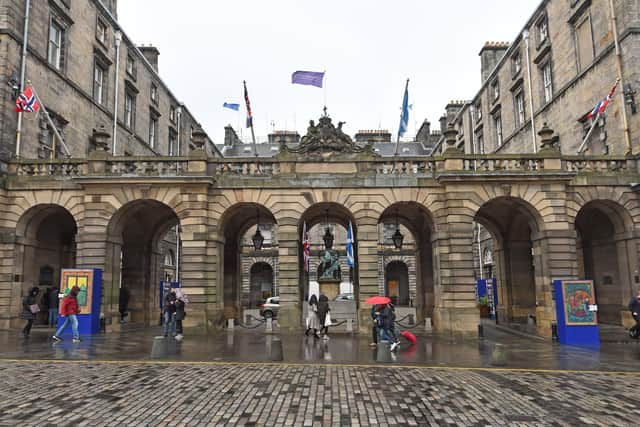Edinburgh councillors to be quizzed on their sexual orientation, race and disability in bid to increase diversity
and live on Freeview channel 276
Councillors in Edinburgh are to be asked about their race, sexual orientation, disabilities and other "protected characteristics" in a survey aimed at improving diversity among those in elected office.
Results will be used to establish how far the councillors elected to run the Capital reflect the make-up of the city’s overall population and identify under-represented groups from which people should be encouraged to stand for the council at the next elections in 2027. The voluntary, anonymous survey comes after a motion was approved by the full council last year, asking for a breakdown of candidates and councillors by gender and under-represented groups.
Advertisement
Hide AdAdvertisement
Hide AdA national initiative last year invited all 2,548 candidates standing across Scotland in the May 2022 council elections to take part in a survey on candidate diversity characteristics. A total of 720 filled it in – a response rate of 28.2 per cent – including 52 of the 143 candidates in Edinburgh.


No breakdown of results was available on the Edinburgh responses. But the overall survey found under-represented groups included women, young people, those with less than degree level qualifications, those with a limiting health condition and people from lower socio-economic groups. It also found over-representation of males was particularly high in the younger (18 to 34) and older age groups (65 plus) and lower in the middle age group (35 to 64). But the survey also found a higher proportion of respondents identifying as lesbian, gay or bisexual than in the overall population.
No data has been collected on councillors' diversity and there is no requirement on them to declare any protected characteristics. So a report to Tuesday's policy and sustainability committee says there are plans for a voluntary survey to collect diversity data of the 63 elected members during the first quarter of 2023. In addition to protected characteristics listed in the Equalities Act – age, sex, gender reassignment, disability, race, religion or belief, and sexual orientation – the survey is expected to ask councillors if they are care-experienced, act as unpaid carers and whether they have another income source.
Council leader Cammy Day said the survey would be a useful tool in trying to make the council more representative of the general population. "It is to highlight where there are gaps in representation among those in elected office in the city, and see whether we or the Electoral Commission, can target particular groups to make local government more reflective of the society it represents. If, for example, the LGBT+ community is not entirely represented in the survey then I think local authorities, the Electoral Commission and [local government umbrella body] Cosla should be doing more work to promote the benefits of being in elected office to the LGBT+ community.”
Advertisement
Hide AdAdvertisement
Hide AdHe acknowledged there was also a responsibility on political parties to be more open to diversity. He said none of the current party groups at the City Chambers was fully diverse. “Our Labour group has more than 50 per cent of our member who are women, but we don’t have any BAME members. Some groups might have BAME representation, but are under-representative of women. And we don't yet know the representation of LGBT+ communities. I think we should all be holding our hands up to say our groups are not entirely representative of the city as a whole. I'm hopeful all members will take part in this survey because it is about trying to identify areas where we need to promote elected office among diverse communities.”